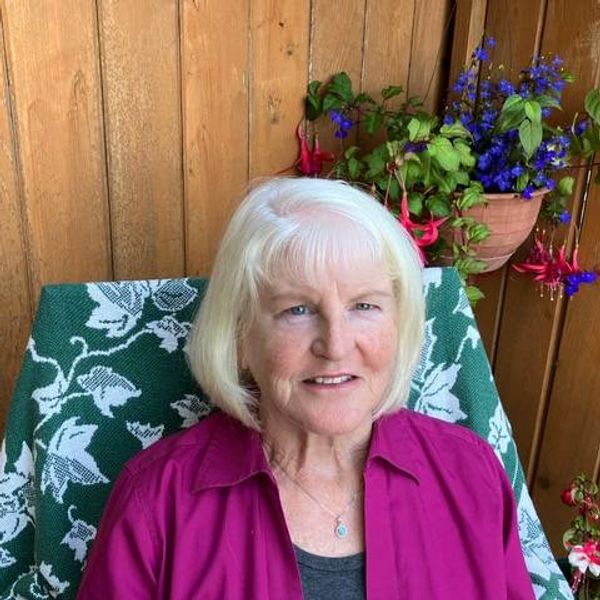Maureen Upsahl
Maureen’s parents along with her older brother and sister immigrated to Washington State from Canada in the early 1950’s. During her childhood and teenage years, she was active and healthy. The summer after high school graduation she did have pneumonia that required several weeks of doctor visits monitoring and treating lung issues.
After high school Maureen attended a local Community college earning an associate's degree in early childhood education. She worked in Seattle as an accounting clerk in a law firm, followed by her work as a travel agent.
After Maureen’s marriage in 1978, she and her husband moved to Federal Way, which is 20 miles south of Seattle. They have two children and four grandchildren. She worked in elementary education for 25 years. As a reading assistant paraeducator she provided reading support to kindergarten through 3rd grade students. As an elementary school librarian assistant, she helped foster the love of reading with kindergarten through 6th grade students.
Health issues for Maureen during the 25 years of raising their two children and working in the school settings were usually mild. However, after having her first child she was diagnosed with hypothyroidism and continues to take medication to maintain healthy thyroid levels.
Allergy and asthma conditions started in the late 1990’s. Her general practice doctor referred her to ENT and asthma/allergy specialists after she had recurring sinus infections. Diagnosed with having nasal polyps and recurring sinus infections, she had her 1st sinus surgery to remove the polyps in 2009. She was given pain medication to use after surgery. Her serious reaction to that medication led to the diagnosis of “Samter’s Triad” now known as AERD. She was frustrated to be told that most likely another surgery would be needed in the future. In 2021 the polyps were causing severe loss of smell and my 2nd surgery was in January 2022 followed by aspirin desensitization in March 2022. Managing her asthma and allergies is more successful now. Her sense of smell comes and goes, she’s hopeful for more improvement in taste and smell as she figures out what strategies work best.


